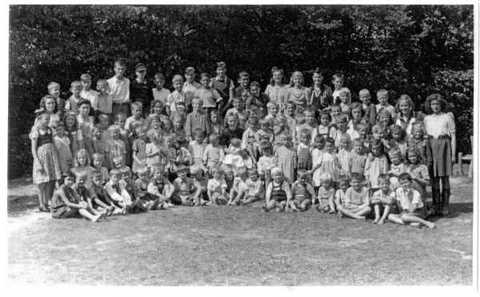
Photo courtesy of Miran Zupanič
DURING the months after Germany surrendered in WWII, the Yugoslav government separated more than 90 children from their mothers and fathers at camps northeast of Ljubljana. While the children were detained at one camp, many of their parents were executed as enemies of the state at another one nearby.
Sixty-two years later, a dozen of these survivors speak out in the poignant documentary film “Otroci s Petrička” (Children of Petriček Hill). The winner of the best picture award (the Vesna) at last month’s 10th Festival of Slovenian Film, the documentary aired this week on national television.
The children, who at the time ranged in age from toddlers to teenagers, were held at Petrička Hill while their parents were imprisoned at another camp near the town of Celje.
In the fall of 1945, the government released the children, sending some to orphanages or adoptive homes, and others to live with extended family. A few were sent with the Red Cross to Austria and Germany. Only one of the children left the camp with both parents alive.
The filmmaker, Miran Zupanič, says secrecy surrounded the camps until a Slovene newspaper published a story about them in the early 1960s. “If you are without your parents and for fifteen years you are not allowed to speak about your trauma, this is awful,” he says. “They are in awful trauma for all their lives.”
Zupanič felt compelled to tell the children’s stories after reading survivor Ivan Ott’s memoir, “Ukradeno Otroštvo” (“Stolen Childhood”).
“The subject was very sad, very tragic, very strong, and absolutely unknown to people in Slovenia,” he says.
He shot the film in black and white to focus more purely on the survivors who shared their stories. So far, it has appeared solely in Slovene without subtitles, but it is being sent to film festivals in Berlin and other cities, where it may find an international distributor. Zupanič says that if there is enough interest, his producer may be able to arrange a Ljubljana screening with English subtitles.
The filmmaker says he wanted to tell the story not from an ideological point of view, but from an artistic and personal perspective. “When you see other people in one ideological uniform or another, you see them as enemies or in some stereotypical form,” he says. “But you must look deeper and find what is human.”